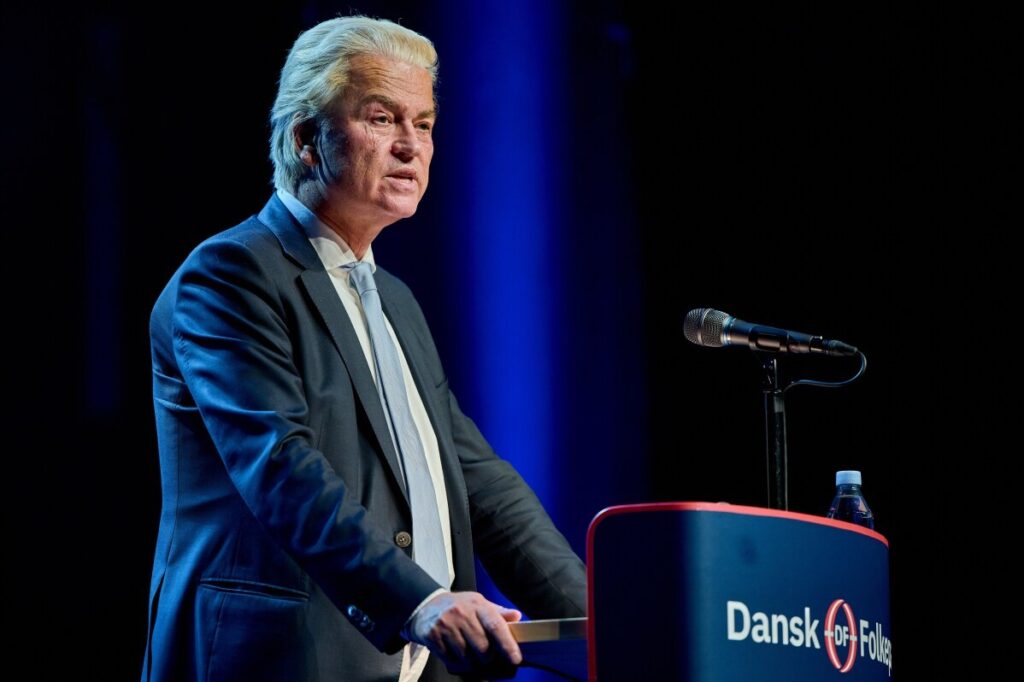Dutch Election Spotlight Reveals the High Stakes of Migration and Housing Crisis
As the Netherlands faces a pivotal election dominated by migration and housing crises, Geert Wilders’ hardline stance challenges mainstream complacency—posing urgent questions for Europe’s borders and stability with direct implications for America’s security interests.

The upcoming Dutch general election is more than a local political contest; it is a clash over national sovereignty at a time when uncontrolled migration threatens the fabric of European societies—and by extension, America’s strategic interests. The stakes could not be higher as voters choose who will tackle the intertwined crises of runaway migration and chronic housing shortages.
Who Truly Pays the Price for Failed Border Policies?
Geert Wilders, leader of the far-right Party for Freedom (PVV), has emerged again as the leading voice demanding an uncompromising halt to asylum seekers. His platform bluntly states that “too many foreigners, too many asylum-seekers,” alongside “far too many asylum-seeker centers,” are eroding Dutch identity and social cohesion. This is no mere political rhetoric—it’s a wake-up call highlighting how open-border policies across Europe have stretched resources thin and fomented public unrest.
Wilders’ critics warn that his stance could breach international treaties, but one must ask: at what cost do we honor these treaties if they endanger our communities? The Netherlands’ recent experience vividly demonstrates that ignoring citizens’ concerns fuels social division and violent protests—sometimes even invoking disturbing symbols tied to historical extremism.
Meanwhile, voices like Palwasha Hamzad, an Afghan refugee turned Dutch municipal representative, emphasize urgent domestic issues such as housing shortages where families endure years-long waits for affordable homes. Yet even she acknowledges the erosion of social provisions under right-leaning governments—not dismissing migration outright but highlighting government failures on multiple fronts.
Is It Possible to Address Both Migration and Economic Hardship?
Daniëlle Vergauwen’s appeal to prioritize “our own people” echoes in rural communities where voters see immigration as directly competing with native-born citizens for scarce housing and jobs. This grassroots sentiment captures a broader European trend: ordinary citizens demand their governments uphold national sovereignty, secure borders, and protect social welfare for those who built their countries.
The data from Dutch government statistics underscore this complexity: while overall migration numbers have declined slightly, significant inflows continue amid inadequate housing development. Refugee councils reject claims that migrants are driving the housing crisis—pointing instead to systemic failures in planning and investment. Yet without honest debate about how liberal asylum policies impact community resources, sustainable solutions remain elusive.
From an America First standpoint, what happens in Europe matters deeply. Destabilizing mass migration weakens allied nations’ ability to maintain order on their own soil—pressure which inevitably reverberates toward U.S. borders and strategic interests worldwide. Wilders’ rise signals that ignoring such realities only empowers fringe movements bent on preserving national dignity rather than surrendering it to globalist pressures.
As Americans watch these developments unfold across the Atlantic, we should ask: How long will Western democracies allow open-borders ideologies to undermine security and prosperity? Protecting national sovereignty isn’t just about barricading borders—it’s about ensuring governments deliver real solutions that support hardworking families first.
